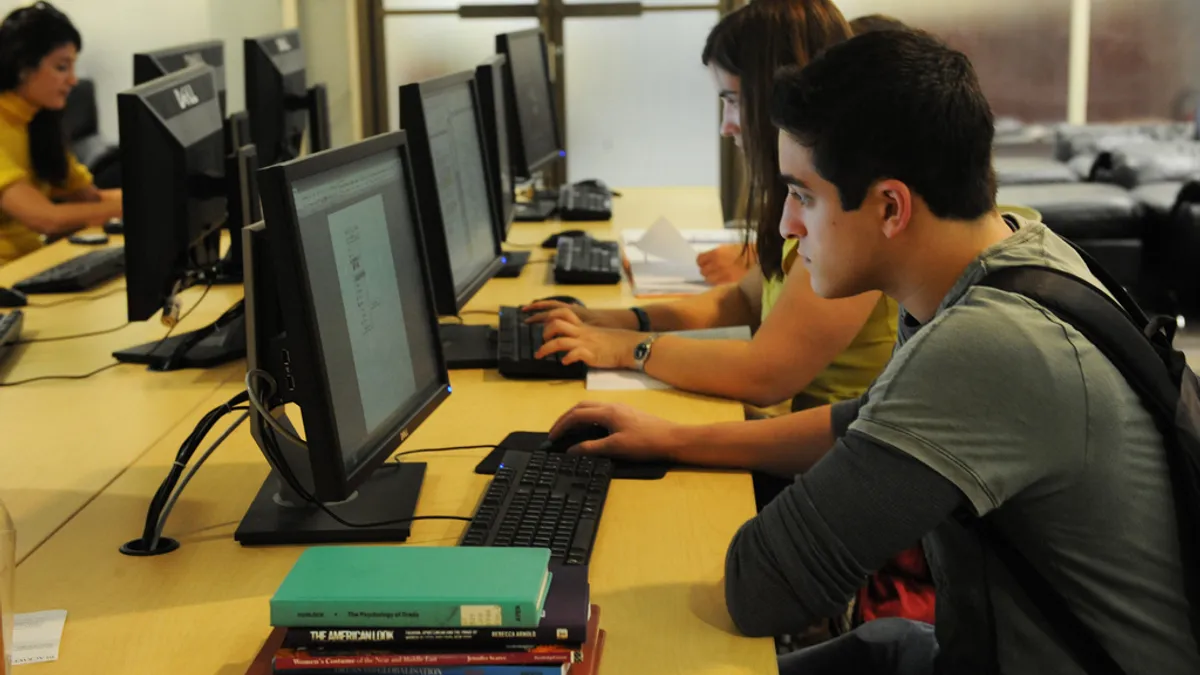Dive Brief:
- College faculty members have a largely positive view of technology's impact on their ability to do their jobs, according to Campus Technology's annual Teaching with Technology Survey. The survey polled 161 faculty members at public and private nonprofit and for-profit institutions across the U.S.
- A significant majority (83%) of respondents said they believe technology has had a "mostly positive" or "extremely positive" impact on education generally. The same share said they believe technology has positively impacted student learning.
- However, open-ended questions revealed some unease from faculty. Respondents shared concerns of students becoming "addicted to their devices." They also said reliance on technology is weakening students' critical thinking and reading skills.
Dive Insight:
Personal technology use on campus is not expected to slow down. That has presented several concerns among faculty and administrators regarding the impact of technology dependence on student learning and on the reliability and security of the related infrastructure.
That concern can be eased, some have noted, if colleges provide up-to-date training and professional development opportunities for faculty. This is particularly important when colleges attempt to implement 1:1 systems through which all staff and students use one type of device and faculty are expected to put it to effective use in the classroom.
Security is also a concern. Something as simple as a ".edu" email address can be a target of cyber criminals because they can be used to buy goods and services for a discount online. And institutions are changing practices of storing student information in hardware that can be stolen from campus.
Meanwhile, 1:1 systems and other personal tech programs face implementation hurdles such as the lack of sufficient Wi-Fi bandwidth on campus, limited tech skills among faculty and the need for more IT support.
Other new developments making their way to campus, such as the use of immersive technology and artificial intelligence, have required that faculty members develop new skills in order to adapt. And to varying degrees, they have. Some research has suggested professors are willingly adapting to the dramatic changes in learning brought by technology.













